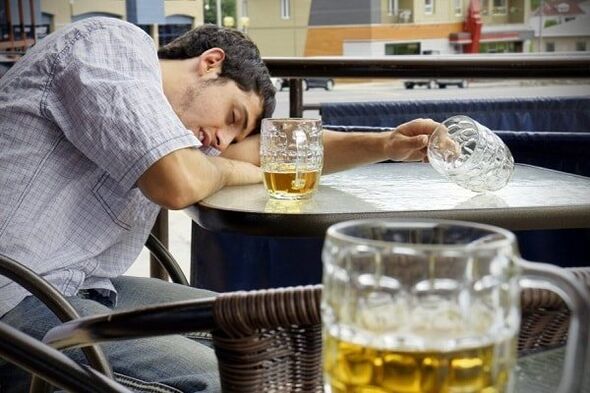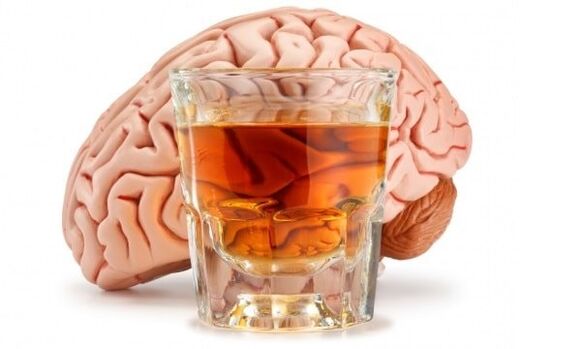Alcohol dependence and the treatment of alcoholism have become increasingly frequent and persistent discussions. There is a problem. How can you help an alcoholic cope with an addiction?
This question is asked by more than one family member with a similar problem, most often an alcoholic's wife who dreams that one day her husband will stop drinking. How can you help an alcoholic stop drinking?
Most of the time, when you want to help an alcoholic patient, you will be accompanied by a subjective sense of the problem. They are irritated by alcoholic beverages, which make family relationships difficult and contribute to financial difficulties.
An alcoholic person may only have a vague impression that things are out of control and often fail to see the problem in alcohol abuse.
He does not understand that there is something to be done about alcohol addiction, especially when asked to be treated with drugs. The alcoholic sincerely denies it is him.
In the eyes of a drunk, other people who want to help are exaggerating the situation. They are like enemies, not helpers and allies. What Can Be Done To Make Aid For A Home Drinker Effective?

How can you help an alcoholic stop drinking?
Paradoxes of helping a person who drinks.
More than one wife of a drinking man wondered what family life would be like if the husband stopped drinking. In a fit of sadness and anger, she throws arguments in the style: "If you loved me, you have long since drank this alcohol. " Unfortunately, such words only lead to a result that is fundamentally different from the intended one.
Reinforcing guilt in the home drinker leads to the patient wanting to drink. The behavior of alcoholics is not a manifestation of malevolence but a consequence of the illness.
His emotions, thinking, and will were guided by alcohol, which is difficult to escape. Alcohol becomes a means of drowning out sadness, boredom, shame, stress, and routine.
The addiction mechanism is that ethanol switches off negative emotions and in return, at least for a short time, gives positive ones - joy, relaxation, peace. When he is sober, desperation falls over him again, and later another bottle or beer becomes "medicine".
An alcoholic person, under the influence of drinks, transforms bad emotions into pleasant ones, which leads to a complete lack of desire to change anything in their life. Hence, the best help to a person who drinks is that which consists in bringing the alcoholic to face with reality when he is sobered up.
Let him experience the consequences of his drunkenness, for example waking up on a park bench without a watch or shoes, paying an alcohol fine and receiving a reprimand from his boss that he does not show up for work after an event with colleagues.

Any negative experience of alcohol intoxication will be a signal to the drinker that drinking alcohol is not at all attractive and poses a serious problem that creates difficulties for others - family or work-place problems.
Unfortunately, many people who want to help a loved one worry about how to help an alcoholic deal with the addiction and try to cover up the issue of alcoholism so the family does not find out about the problem.
Instead of calling the problem "alcoholism" and letting the drunk see the negative consequences of alcohol abuse, people do something completely different. They defend the house drinker, justify his drinking, hide alcoholic beverages from him, deny that they have any problems with alcohol at all.
Thus, the drinking household feels "protected" and can still drink with impunity. Often times, people who want to free the alcoholic from their shackles unwittingly become drinking aids and help to postpone the decision to stop drinking.
The most common victims of co-addiction are the wives of alcoholics. If the husband is an alcoholic, then he is addicted to one chemical substance - ethanol, and his wife, strangely enough, becomes dependent on her alcoholic husband.
She becomes a so-called partner who trusts no one in her spouse's world and, in her desperation, is constantly preoccupied with finding a new job to meet the partner's financial obligations. In doing so, she lies to the children that dad is sick, denies alcoholism, neglects herself and the children, ignores her own needs.
This problem also requires some therapy. How can you help an alcoholic cope with an addiction? Until the alcoholic's wife understands that she is not helping him and protecting him from the negative consequences of alcohol intoxication, the husband will drink by then.
Co-alcoholism is a series of careless behavior by an alcohol addict's partner trying to adapt to a pathological situation. Unfortunately, this only multiplies the pathologies and problems that follow.

The family then tinkers with not just one, but two addictions - alcoholism and co-alcoholism. The wife works in good faith - she hopes in this way to make it easier for the husband to get out of the addiction. Unfortunately, their efforts have the opposite effect - they unwittingly provoke the disease even more.
Pay a lot of attention, care, make promises, lie, protect - nothing. How can you help an alcoholic cope with an addiction? To help an alcoholic stop drinking once and for all, you need to stop pretending to be helpless and seek professional help.
Helping an alcoholic is an ungrateful role because the alcoholic will fight fiercely for his or her drink. After making a decision to help an alcoholic, it should be remembered that it is a job for many years, not a day.
A person who drinks will not change under the influence of any obstacle, even the most violent. On the contrary, some argue that it is impossible to help an alcoholic in oneself because one can only harm oneself. Encourage people to seek help from specialized centers such as addiction therapy centers and others.
Tips to help someone with alcohol addiction
How to help so as not to harm and not aggravate the development of alcoholism?

Here are some tips and tricks to keep in mind when deciding to support and heal a person who drinks:
- Accept that alcoholism is a chronic disease. Don't see it as a shame and shame for the family, or something that needs to be hidden from the whole world.
- An alcoholic is like a naughty child who must be punished for lack of discipline and disobedience!
- Don't believe a home drunk's promises when you realize it is possible to keep them! For example, an alcoholic can explain his desire for "cosmetic changes", guaranteeing that he will change the type of drink to a weaker one. Don't expect drastic changes fueled by an argument or extortion.
- Be consistent! If you said you would do something, please do it. Don't worry about leaving if you are not ready.
- Do not blame yourself, do not drag yourself into conflict, do not read sermons, especially if an alcoholic is drunk. He already knows everything you want to inspire him. This behavior only provokes further lies and the presentation of unsubstantiated promises.
- Do not expect an immediate and quick way out of the problem! Alcoholism is a chronic disease, and even longer periods of abstinence do not guarantee that the disease will not return. Brewing monastery tea daily, it will effectively get rid of alcohol and nicotine addiction.
- Do not check how much an alcoholic drink is, do not put away purchased bottles, but do not allow open access to alcohol either - this will only drive the alcoholic into even more desperate attempts to get alcohol and look for an opportunity to drinkkeep.
- Never drink together in the hope that he will get less and drink less. How can you help an alcoholic stop drinking if you are sitting and drinking together? Under no circumstance.
- Don't let the drunk lie, don't believe his lies and promises, because this way you make him hope that he can outsmart his loved ones.
- Try to give support and love to the alcoholic. Appreciate his attempts to stay sober. Remember that alcoholism is an illness and you don't need to scold anyone about the illness.
Helping an alcoholic is most effective when you just leave him alone - don't insist on rehabilitation, scream, cry, beg, prepare sick days, borrow money, clean uphis drunk at parties, let him try to fix things with a hangover. . .
Let him drink at your own risk and peril. The sooner he hits rock bottom, the more likely he is to want to give up quickly in order to get better.

































